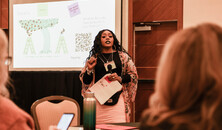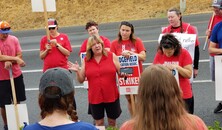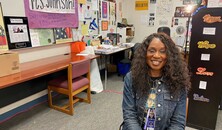Sparks: Helping light the fire of diversity in WEA
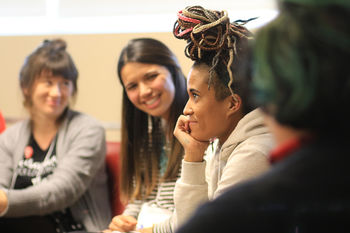
We are stronger when we are all together.
It’s a union truism. And it’s a truth that, too often, has been overlooked or ignored through institutional racism, unintentional implicit bias, or a failure to intentionally, proactively engage with educators of color and minority cultures. Washington’s schools face a huge deficit in the ratio of educators of color compared to students of color. Encouraging more educators of color to work in our state, and helping retain those who already are working here, will help reduce that deficit.
“Diversity makes people better,” notes Naché Duncan, WEA’s Coordinator for Student Programs, ESP and Early Career Educators. “The more you know the more you grow.”
That is the backdrop for this year’s Diversity Sparks, a conference sponsored by WEA for early career educators. Diversity Sparks is part of a conscious effort by the Association to help newer educators succeed in their classrooms, learn about their union, and to create avenues to identify and mentor new leaders.
“The goal of diversity sparks is to really engage our early career educators of color,” Duncan says.
To do that, Sparks offers a custom agenda driven by the interests and needs of each year’s individual participants, typically members with five years’ experience or less. This year, members wanted to focus on classroom management and, especially, culturally responsive classroom management.
Sparks participant Elizabeth Capetillo says she shares those interests: “Anything I can do to promote more teachers of color, I’m all for it.”
As an English Language teacher from Selah, Capetillo says a lot of her job includes advocating for students of color at her school.
“I’m hoping to learn more about restorative justice,” the fourth-year teacher said. “The other reason I came here is to learn more about leadership roles in WEA.”
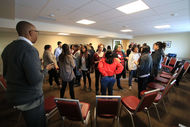
Topics this year included culturally responsive classroom management, a mix of basic unionism FAQs, and a “True Colors” exercise that helps identify differing temperaments and behavior styles so that participants can gain a more inciteful understanding of themselves, their colleagues and their students, and then use strategies to work successfully among those differences. Aaron Dorsey, a trainer from NEA’s Center for Social Justice, led a session on restorative justice practices that focused on creating environments so that all participants can feel safe while finding resolutions to address wrongdoing, repair harm and restore relationships.
The training concludes with Sparks participants joining a weekend Human and Civil Rights Leadership Conference at WEA’s main office in Federal Way.
